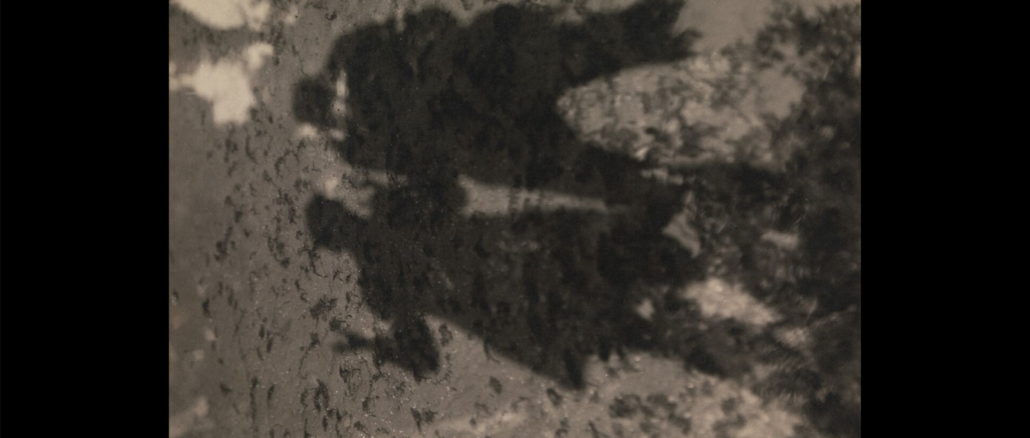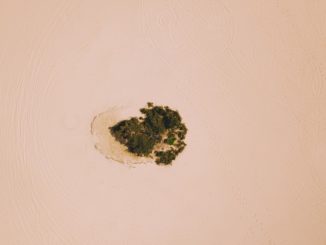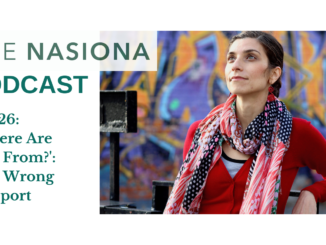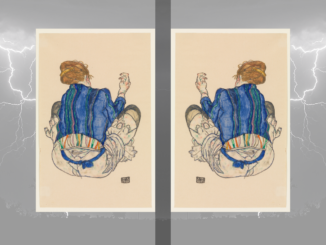
To find me in bureaucratic systems, a matrix ensues: Reyes, Bonar, Reyes-Bonar. The DMV, the pharmacy, any alphabetized system, I am sorted by a nearly arbitrary standard. Am I filed with the R’s? The B’s? It always takes a little longer to find me.
In the hyphen, there is a history. I am complication’s daughter. In Puerto Rico, lingering from Spanish colonialism is the tradition of keeping our mother’s last name. Nobility once de a family has evolved into a last name compromised of both families, across all classes. Once my family moved to the mainland, we adopted a hyphen to signify to anglo systems that our two last names were one.
“I only need the first last name.”
“They are both my first last name.”
Carrying two last names is legacy not only of a patriarchal tradition, but a story equally told from my mother’s side, a maternal inheritance. My mother is Bonar-Ruiz (re: Bonar Ruiz), a name compromised of her father and mother, Bonar Antonetti + Ruiz Lassus. Somewhere between Ellis Island and San Juan, my mother’s family lost a -d, but through the generations we have maintained Bonar. My father was Reyes-Vidal, (re: Reyes Vidal), his mother Vidal Nadal. His father, Reyes. Thus, my siblings and I are Reyes-Bonar. Like DNA, our hyphenated last names are the combination of two people made one, two families culminated into one history. It is a privilege to trace our lineage through names.
My father’s father was a bilingual Mexican-American captain stationed in Puerto Rico sometime after World War II. He wore Reyes on his uniform, and introduced into our family the legacy of a Mexican heritage that had been swallowed up by an impeding American border, further compounding the history of American imperialism on both sides of my family, both sides of the hyphen. Juan Angel Silén wrote in his history of Puerto Rican resistance, “The imposition of North American citizenship on Puerto Ricans…must be understood within the framework of a military government issuing military orders.”
For generations, Puerto Ricans have been caught between being both the product and consequence of American imperialism. A double-edged benefit. Being thanked for our service, while being barred from voting for president until we come mainland. We are citizens, to an extent. Through the school systems assimilation attempted to take Spanish from us, changed our currency to the dollar, and left its bombs to seep cancer into the locals of Vieques. Assimilation moves to sever us from our identity. On the mainland, it asks us to make us more understandable for the systems that intruded on our peoples to begin with, to bring us further into the fold. Inundate, then recede. To insist upon our two last names, our hyphen, is to remind the American system of what it is constantly reminding us of ourselves— we are not from here.
When my parents first moved to San Antonio, Texas, from Puerto Rico there was some grace in the already established Mexican-American traditions, finding some common ground within another colonized nation. ‘Reyes,’ was easily understood. However, we carried the insistence of my mother’s family on our name, adopting the hyphen to make the computers, the bureaucrats, and their new neighbors understand that our two last names were both parts of a whole.
Bureaucracy is colonization’s filing system; at Ellis and Angel island where people were renamed with ‘American’ names, at the border where children are being separated from their families, and thus their namesakes, a practice brutality perfected in Native Boarding Schools. Over the centuries of the Transatlantic slave trade, cultures, names and entire lineages were stripped from the people in a brutalist gesture to weaken identity. That is why we insist on our complication, our trickiness, reminding the systems that we are multitudes. It’d be easier to just be one or the other; one side of the line. But we are not. We are both. Our Mexican great-grandmother lived on a land that wasn’t called Texas, until one day it was, a life-spanning on either side. Mexican-American. Texan-Puerto Rican. Reyes-Bonar. I cannot be split in half.
Our names intimidate bank tellers. Often, people will let me pass as my mother because surely ‘Ana Marie,’ and ‘Marie,’ with a ‘Bonar’ somewhere in the name are the same person. Same for my sister, María. It is convenient until it is not. When my sister married a British man, the patriarchy dressed up as bureaucracy forced a decision that she should take his last name, or him hers, as long as the family had one last name, so that she could travel with her own children, unbothered, so that immigration could not interrogate their relationship, the way it has done to thousands in the history of Immigration and Customs Enforcement. The TSA insists we purchase tickets using the name that appears exactly on our passport, yet not all airline systems will recognize the hyphen.
“Error: symbol not recognized.”
In Puerto Rico, our tourism commercials boast that “You don’t need a passport,” yet Puerto Rican ID’s are rejected at mainland *pharmacies, DMV’s, and club entrances. Ignorance and a pervasive reminder culture of othering permeate the mainland. Despite not having my father’s complexion, he taught us how to be pulled over because when you are Brown like him there is a different implied procedure. He worried about our names triggering an indoctrinated anglo cop to press for immigration status, pitting histories against each other, am I Mexican or American? Would police take the time to understand the history of Puerto Rico, a wave that crashes and recedes?
In the hyphen, there is a middle ground. A pendulum in which a family history is in the balance. To ask me to use one last name is to erase, sever, and remove matriarchal lineage. Our hyphens, our two last names, are the maternal mitochondrial inheritance we use to trace our histories. To know who we are, and who we were.
* On Oct. 25, 2019, Jose Guzman Payano’s Puerto Rican ID was rejected at CVS pharmacies, calling for a Puerto Rican boycott of all CVS pharmacies.
** For this essay, I reference Juan Angel Silén’s political Puerto Rican history, “We, The Puerto Rican People.” Beyond its content in the back of the book, in my late father’s handwriting, is a bus schedule from Florida to New York. At the time of the book’s publishing my father was getting his master’s in Latin American studies at the University of Florida. Like the theme of the essay, it is a stark reminder of who I come from, that to look back is always in service of the future.
Ana Reyes-Bonar
Ana Reyes-Bonar is a Puerto Rican Texan Mexican American writer who, through creative nonfiction, insists on multitudes and the importance of personal narrative as histories.
Featured image: Alfred Stieglitz, “Shadows in Lake,” gelatin silver print, photograph, 1916. Alfred Stieglitz Collection, 1949. The Metropolitan Museum of Art.



1 Trackback / Pingback
Comments are closed.